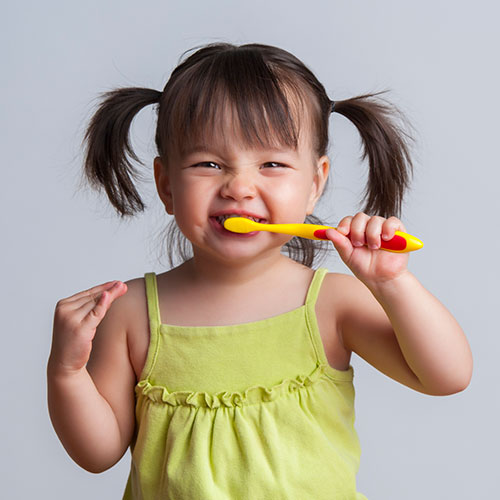Dentistry for Children
What is Pediatric Dentistry?
Pediatric dentists are primary and specialty oral care providers for infants and children through adolescence, including those with special health needs. At Forest Acres Dentistry we are general dentists that provide general and family dentistry to patients of all ages, which means our patients’ ages range from 2 to 92.
Through our dentistry for children, we are able to see and treat many children. If your child has unique or advanced needs that we feel is beyond our scope, then we have strong relationships with local Pediatric Dentists to refer you to as needed.
Keeping your child’s teeth and gums healthy is an important part of their overall health. Making routine dentistry a part of your child’s overall health care plan is just as important as regularly visiting your pediatrician. Kids who learn to practice good oral hygiene early on are more likely to adopt positive healthy habits for their entire life.
When should I first bring my child to the dentist?
The first baby tooth usually erupts when a baby is between six and twelve months old. By age three, a child should have their full set of baby teeth. We usually recommend scheduling an appointment with us by the time your child is three years old for his or her first exam and cleaning.
Because the parents of children are most frequently our patients as well, we are able to discuss oral hygiene habits for babies and toddlers and address any questions you may have before your child is three. However, if you have any concerns regarding your child’s teeth before they turn three, we will gladly see your child for an exam.

Brushing should begin after your child’s first tooth appears, and flossing should begin as soon as any of the child’s teeth touch. Removing plaque and bacteria from the mouth will help prevent cavities, gum disease, and tooth loss.
Floss and brush after meals, or at least twice a day. Tooth paste is not indicated in children less than three (or when they don’t know how to spit well) to avoid swallowing fluoride. You can just wet the tooth brush with water, or you can use a training tooth paste that does not contain fluoride. Around age 3, or whenever you child can effectively spit out their tooth paste, you should use a small (pea sized) amount of a fluoride containing tooth paste.
Eating Well
Healthy food is an important part of maintaining your child’s dental health. Keep sugar to a minimum to help prevent tooth decay. This includes sugary drinks like soda and fruit juice, which also contain acids that can harm tooth enamel and make them even more susceptible to cavities. It is also important to not allow your child to sip on sugary drinks or graze on snacks throughout the day. A high frequency of eating and drinking, particularly sugary or sticky foods, results in a higher risk of developing cavities.
Breaking Bad Habits
Do your best to stop your children from sucking their fingers. Prolonged finger sucking or pacifier use can affect the way their palate and adult teeth develop. This can result in crooked teeth or even skeletal growth issues that can cause serious problems with their bite.
Have a question or want to make an appointment?
Are you interested in learning more about your teeth? Do you have dental health goals you would like to meet? We would be honored to explore that with you and help you find solutions.


